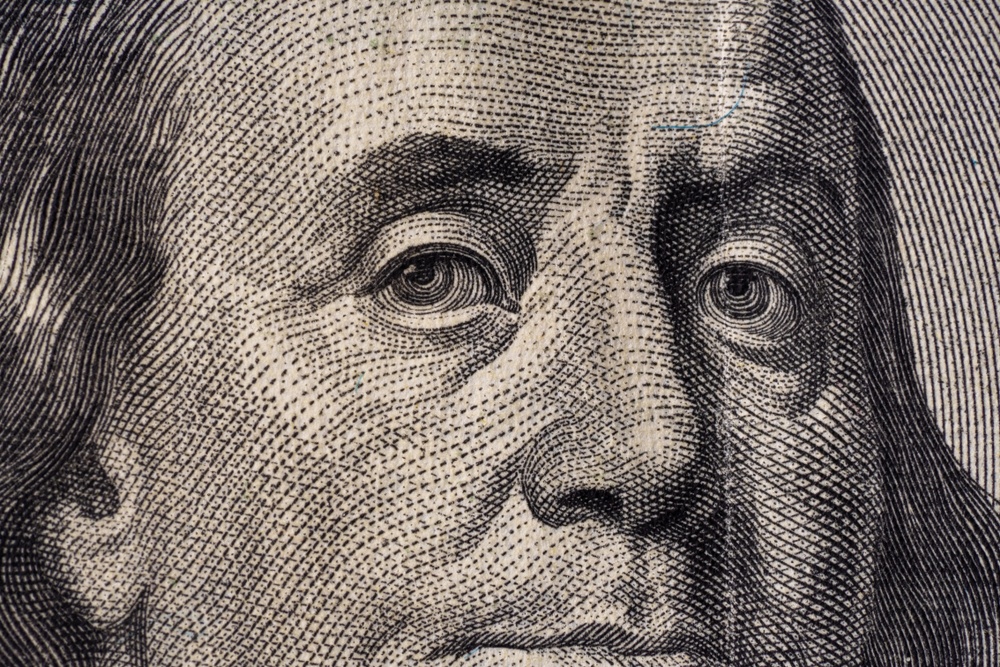The Greatest U.S. Dollar Squeeze is ‘Loading,’ Says Liquidity Game Theorist

A liquidity crisis involving the U.S. dollar could take the financial system by surprise, analysts warn. | Image: shutterstock.com
The world is facing a crisis that makes the U.S.-China trade war nothing but a distraction.
If you find this hard to believe, just look at this tweet by global macro strategist Teddy Vallee , which was later retweeted by Luke Gromen , founder of Forest for the Trees, a macroeconomic research firm.

What they are talking about is the global U.S. dollar shortage. The world is in desperate need of greenbacks that a collapse of the financial system may be on the horizon.
This problem appears to have started in 2008 when the global financial crisis caught almost everyone by surprise. The Federal Reserve tried to combat this dollar squeeze with quantitative easing but it seems to have only delayed the inevitable. When central banks saw that printing money won’t solve the massive liquidity crunch, they started to become net buyers of gold.
The liquidity crisis may have started over a decade ago but the worst part of the shortage is about to strike us only now. That’s according to game liquidity theorist, Majin.
Analyst: ‘There’s a Liquidity Squeeze Going On’
Majin is fondly known as Crypto Twitter’s biggest bull. For the last year or so, the analyst has been on point with his calls on bitcoin. While Majin studies how buy and sell bots operate, the trader also looks at macroeconomic factors and see how liquidity can affect the dominant cryptocurrency’s performance.
Recently, the analyst shared a bullish chart of the dollar index (DXY). According to Majin, we are possibly looking at the early stages of a crisis.

When asked about the implications of a surging dollar, the liquidity game theorist replied,
Well there’s a structural global shortage in dollars which is the result of 2008, when the eurodollar system broke down.
The eurodollar that the analyst is referring to is no way related to the euro. Macro strategists gave the term eurodollar to all dollars that exist outside of the U.S.
In addition, Majin emphasized how the Fed tried to step in to solve this problem but to no avail. The analyst said,
Quantitative easing was unable to solve this liquidity drain in the financial system and now things are speeding up as many countries’ currencies around the world are dying as the demand for dollars is rising globally.
Majin gave the plight of Lebanese millers as an example of how everyday people from other countries are starting to feel the effects of the U.S. dollar crunch. According to National.AE, Lebanese banks have restricted access to dollars as ATMs run out of cash.
The squeeze is also felt in other areas of the financial system. The repo market has been in distress for about a month already. The swap market is also struggling with the dollar shortage .
Majin: The U.S. Dollar Shortage Creates More Demand for the Greenback
Unfortunately, the liquidity crunch is making matters worse. Majin said,
The effect of this global dollar shortage is even more demand for the dollar, further appreciating the dollar as a safety asset for the rest of the world.
The downside is that the global economies will suffer. The analyst added,
A rising dollar will have severe repercussions for trade, competition, and other structural problems. First, the weak links [will suffer] and the US will be the last place to get hit hard.
When asked what will ignite the crisis, the trader replied,
Time will ignite it.
To get a better sense of the timing, Majin referred us to Brent Johson’s interview on MacroVoices. The CEO of Santiago Capital said that it is likely that the dollar would appreciate in the next two years . This would catalyze the events predicted by the liquidity game theorist.
For someone reading about the U.S. dollar crunch for the first time, the future may seem very scary. This is likely why authorities are distracting most people with the trade war.